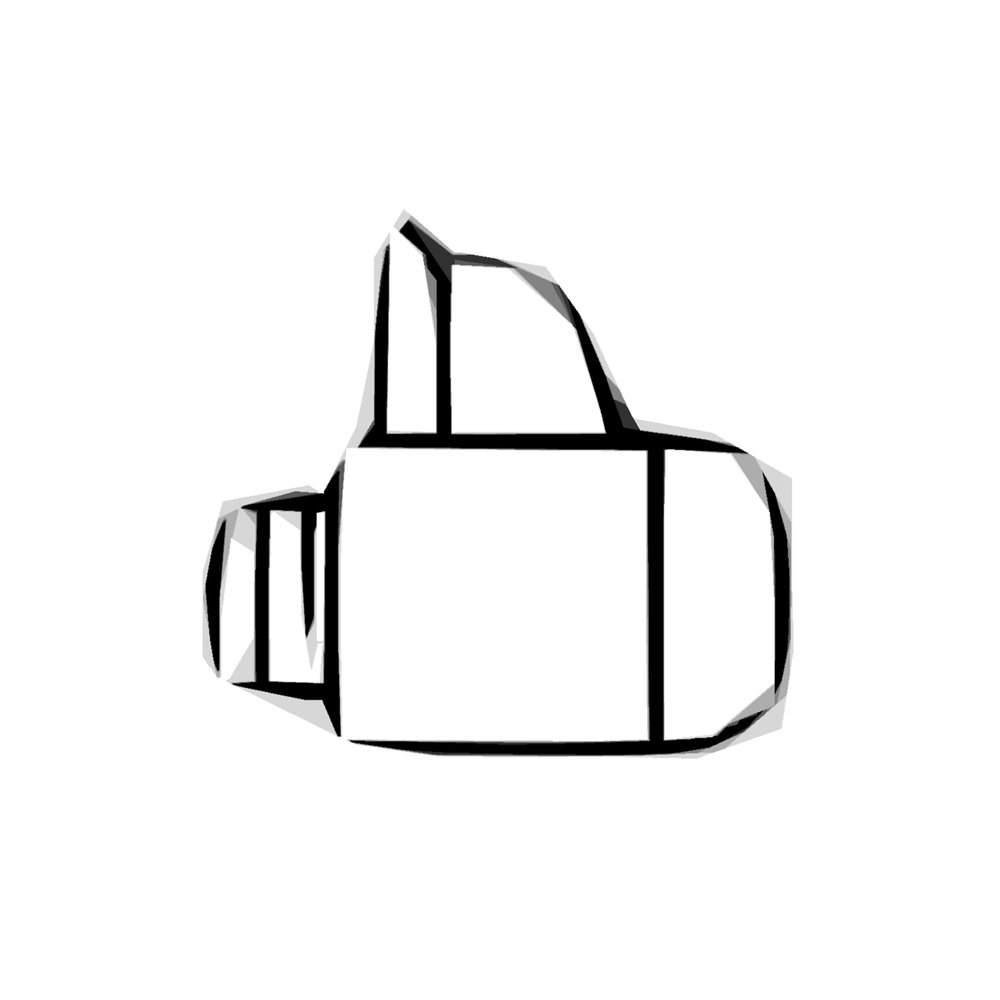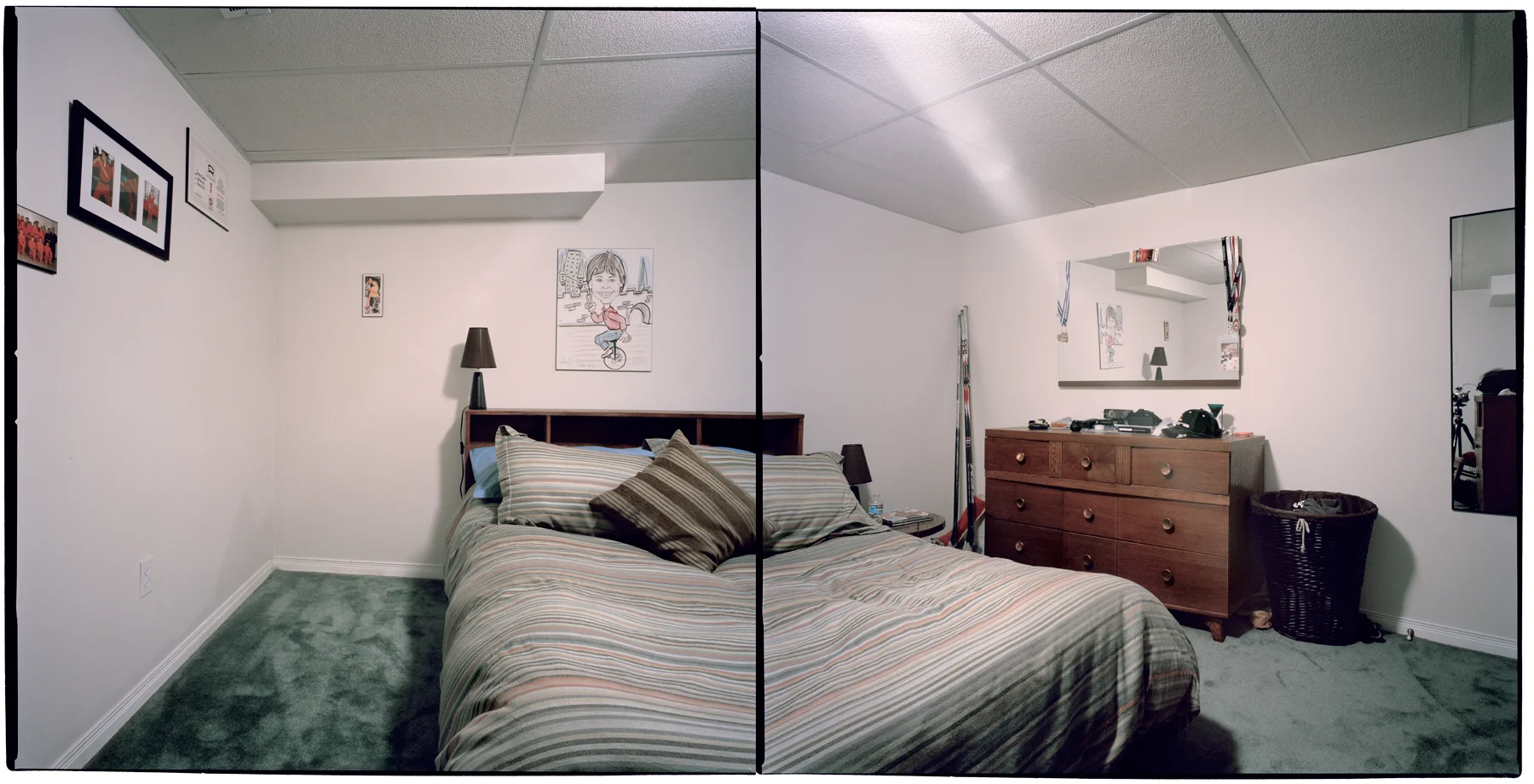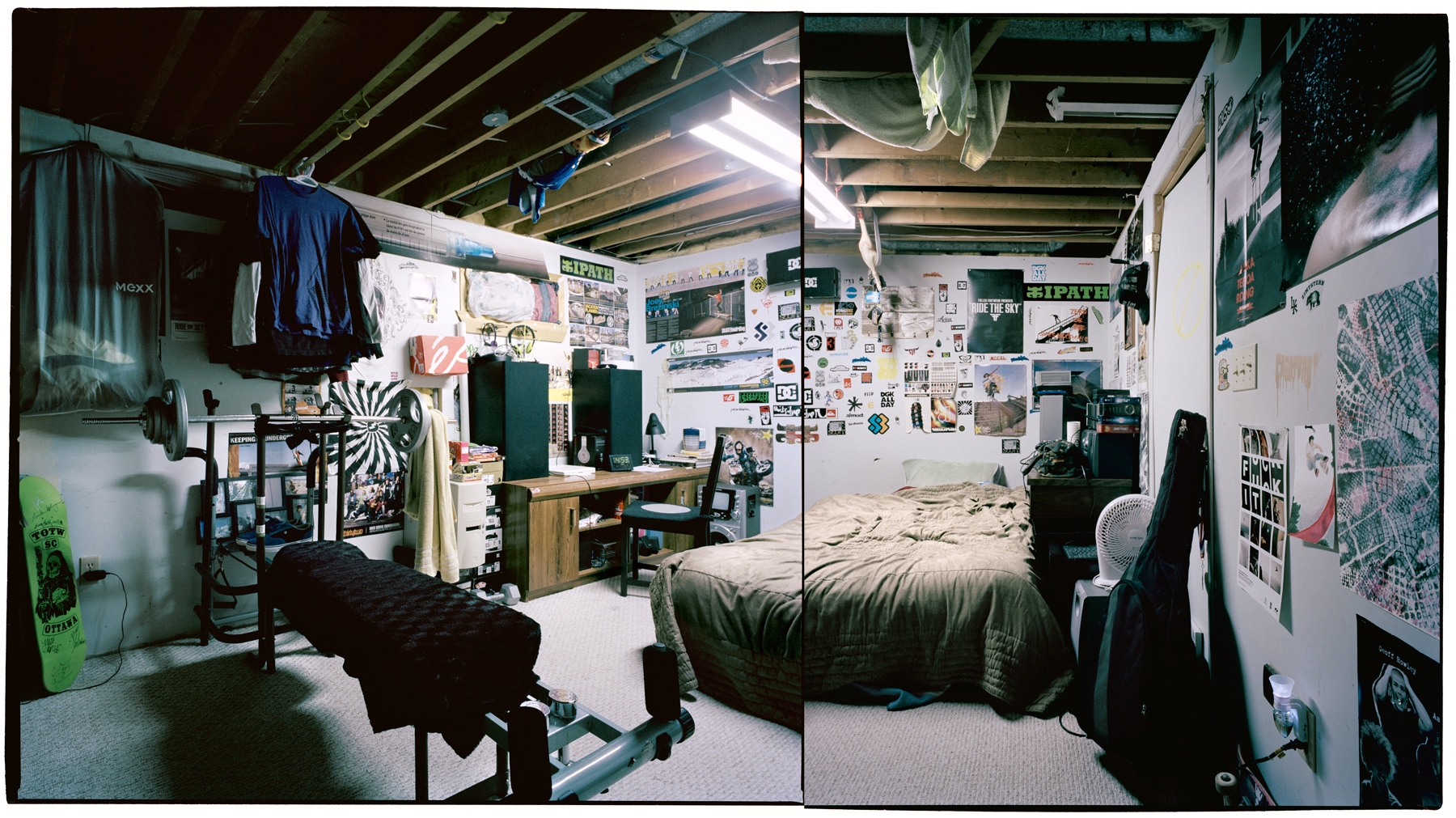Questions have emerged in my mind about the nature of boys. This group of humans, while in reality not so distant from myself, have always seemed a different species entirely. Specifically, those who have passed boyhood but are dipping their toes into the waters of manhood, travelling through a treacherous part of life: teenagers.
Boys have always been a mystery to me – having a brother and male friends did nothing to assuage feelings of alienation from that other species. To befriend them was a challenge, to engage them romantically was an impossibility. As a woman, I will never understand men the way I fundamentally understand women; this creates a kind of curiosity that lends itself to photography. I approach teenage boys now with a touch of hindsight and a healthy dose of curiosity. What was invisible or different about the boys around me when my vision was coloured by my own teenage inhibitions?
As children, our lives are controlled by others – activities, interests, schedule. When we begin to become individuals and make our own decisions, the bedroom is often where these decisions begin – this is the one space where a child or teenager is permitted to take ownership. For many, the bedroom becomes a kind of temple – a sacred space that is untouchable by parents and others, a space to represent interests, thoughts, and dreams.
From birth, gender roles are deeply ingrained in both boys and girls. Women are permitted, even encouraged, to be emotional, to discuss reactions to interpersonal relationships, to feel scared, lonely, weak. Men are trained to do the opposite growing up – a boy who shows signs of any of these is bullied, teased, labeled feminine. “Man up”, “grow a pair”, “stop being a pussy” are phrases often repeated by peers and mentors alike. When and where are boys permitted to be vulnerable?
When I began this series, there were questions about taking the boys out of their environments – why separate the two? I was very certain that I did not want to photograph the boys inside their bedrooms, but I was not entirely sure why. Hindsight has helped to explain my initial reasoning: these bedrooms are truly much more of a portrait of the boy than the image of the boy himself. Much like the boys they represent, each bedroom is distinct, a collection representing the individuality of each boy. The studio portraits, conversely, are ambiguous and nearly devoid of identity – I have stolen from the boy all that represents his character, lit, posed, and post-produced him. Skin, eyes, and hair are ultimately not much more than that, but to the viewer, they represent infinite interpretation.
I understand the uncomfortable nature of this series for my models – I am essentially forcing them into incredibly vulnerable situations. By placing each boy in a totally unfamiliar environment and asking him to remove his shirt I create a well-defined set of discomforts. Asking him if I can enter his bedroom and document it with my camera elicits added tension. These photographs are representations of vulnerability in every sense, and this vulnerability is tangible here. These images represent a space where boys are permitted to be vulnerable, to feel emotional, lonely, weak, afraid. However, they also allow for the viewer, and the image-maker, to feel all of those things.
That anyone would agree to model for me always astonishes me, despite the fact that I – of all people – know I have the best of intentions. It feels as though they are letting me steal a piece of themselves, and allowing me to do with it what I will. Camera in hand, I can create and examine extremely intimate situations that would otherwise be close to impossible to explore. A portrait sitting often feels like a silent therapy session: I am trying to engage with my model using body language and eye contact, without the words that would usually accompany those signs. These images ultimately represent a trade of vulnerability: in our best moments together, my intense struggle to be genuine evokes something singular from my subjects. All I can be is honest, and the most I can hope for in return is honesty.
























